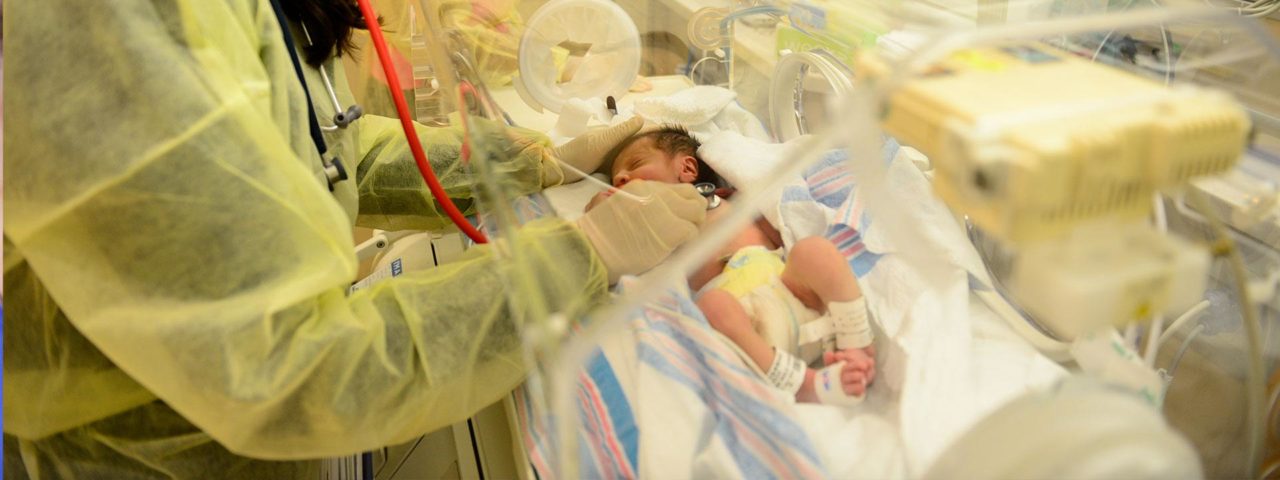If your baby is premature, has low birth weight, or requires special needs, they may spend time in our Neonatal Intensive Care Unit (NICU). Family-centred care is promoted and supported by all our staff. We encourage you to ask questions, and you may want to keep track of information in a journal.
We are excited to be working with The Hospital for Sick Children (SickKids), Children’s Hospital of Eastern Ontario, and Holland Bloorview as the first community member of Kids Health Alliance (KHA). This great partnership brings together some of the best resources for providing care to children and youth. The KHA will focus on the Emergency Department, inpatient paediatrics, and the NICU.
The Environment in the NICU
When your baby is first admitted to the NICU, they will most likely be placed on an open bed with overhead warmers, to help maintain body temperature. These beds also allow easy access to provide various medical procedures or treatments. Once your baby needs less assistance, they may be placed in an isolette (incubator). These beds provide warmth and allow for close observation.
Your baby will be placed on a cardiac and/or SpO2 (saturation) monitor, which monitors your baby’s heart rate, respiration rate, and oxygen saturation. Your nurse will be happy to explain this monitor to you. All of the NICU monitors are connected to each other and are centralized to a main computer at the nursing desk. This way, a nurse can look at any monitor screen to see if your baby is okay.
Find out more about what to expect in the NICU:
- Taking care of your baby in the NICU
- Health care providers in the NICU
- Your baby’s routine in the NICU
- Breastfeeding, pumping breast milk, and bottle feeding
- Alternative forms of feeding in the NICU
- Where to eat, rest, and relax at Markham Stouffville Hospital
- Helping siblings adjust to the NICU
- Ronald McDonald Family Room
Care by Parent Rooms at the NICU
Located toward the back of the NICU are two Care by Parent rooms that you may wish to use during the day to rest, relax, sleep, or pump. There is a nominal fee charged for the use of these rooms.
Follow-Up Care After the NICU
After leaving the NICU, your baby may require a NICU follow-up clinical referral, which is usually done within one to two days after discharge. If your baby is premature, we recommend finding a paediatrician who is familiar with preemie milestones and growth patterns, if possible.
We can assist you with finding a paediatrician. Your baby may also require a neonatal follow-up clinic referral to watch his or her development over the first three years of life.
Find out what to expect after leaving the NICU:
We use many medical terms in the NICU. Download a list of terms you may come across during your stay with us; you are always welcome to ask questions about anything you hear.


